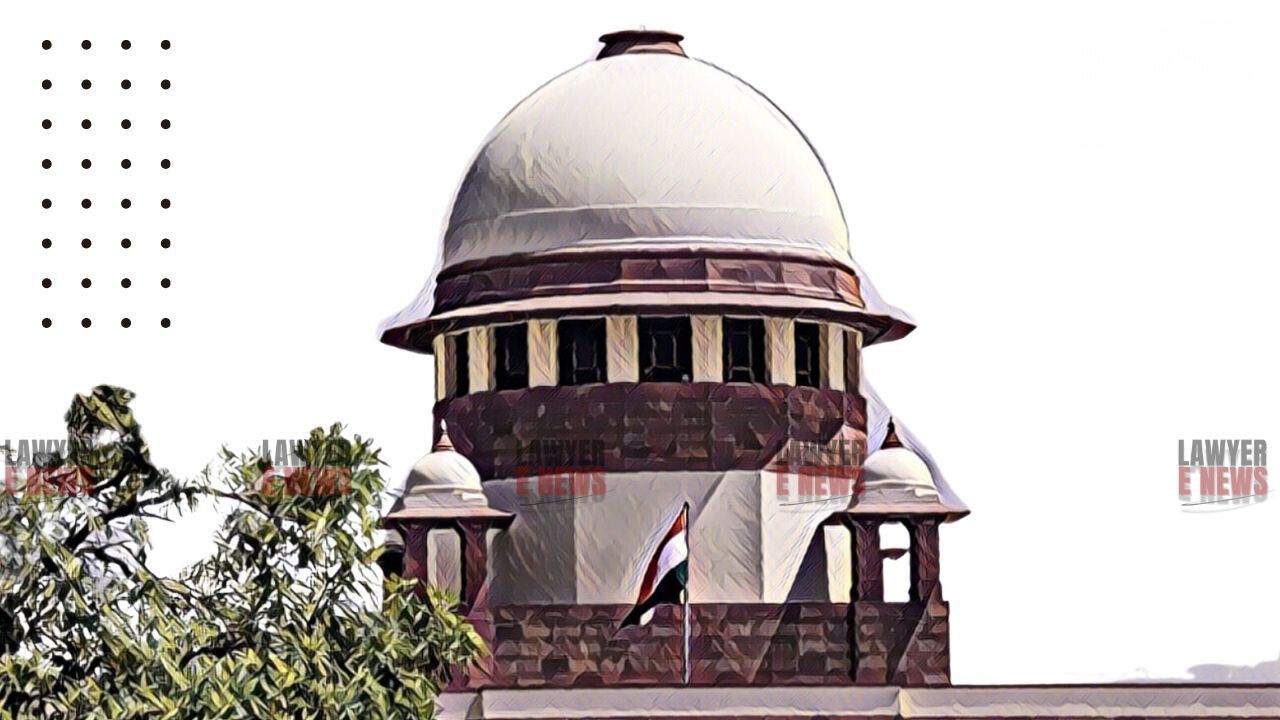-
by Admin
16 February 2026 1:47 PM



"A Construction Rendering Clause 6(b) of Bipartite Settlement a Dead Letter Must Be Avoided" - In a decisive judgment Supreme Court of India upheld the right of a removed bank employee to receive pensionary benefits under the Bipartite Settlement, dismissing the appeal filed by UCO Bank. The Court observed, “Such of the employees who are otherwise eligible for superannuation benefit and are removed from service in terms of Clause 6(b) of the Bipartite Settlement shall be entitled to superannuation benefits.”
This ruling affirms the legal harmony between the UCO Bank (Employees') Pension Regulations, 1995 and the Bipartite Settlement, safeguarding pension rights of employees removed under Clause 6(b) without creating a conflict between the two instruments.
The respondent, Vijay Kumar Handa, who served as a clerk with UCO Bank, was accused of gross misconduct for allegedly assaulting another officer within the bank premises in 1998. A domestic enquiry was conducted, and the charges were found proved. The Disciplinary Authority initially imposed a penalty of dismissal from service, but the Appellate Authority modified the punishment to removal from service with entitlement to terminal benefits, explicitly stating that “removal from service will not be a disqualification for his future employment”.
Subsequently, the respondent raised an industrial dispute, and the
Labour Court invoked Section 11A of the Industrial Disputes Act, reducing the penalty and ordering reinstatement with back wages. However, this award was set aside by the High Court, reinstating the Appellate Authority's order of removal with benefits. This order became final.
The controversy arose when the bank denied pensionary benefits to the respondent despite the settled position. The respondent approached the High Court, which directed the Bank to process his pension application. The Bank's appeal was dismissed by the Division Bench, leading to the present appeal before the Supreme Court.
The Supreme Court was called upon to decide whether an employee removed from service under Clause 6(b) of the Bipartite Settlement, but otherwise eligible, is entitled to pension despite Regulation 22 of the Pension Regulations stating that removal results in forfeiture of past service.
The appellant contended that “Regulation 22(1) of the Pension Regulations bars grant of pension to employees removed from service”, and that the respondent had never opted for pension prior to his removal. They further argued that the precedent in Bank of Baroda vs. S.K. Kool was distinguishable.
The respondent, on the other hand, argued that the Appellate
Authority's order had already conferred entitlement to terminal benefits, including pension, and that Clause 6(b) read with the settled law in S.K. Kool protects pension rights in such cases.
The Court firmly rejected the bank's argument, holding:
"From the conspectus of what we have observed, we have no doubt that such of the employees who are otherwise eligible for superannuation benefit are removed from service in terms of Clause 6(b) of the Bipartite Settlement shall be entitled to superannuation benefits. This is the only construction which would harmonise the two provisions."
Further clarifying the interplay between the two legal provisions, the Court warned:
"The construction canvassed by the employer shall give nothing to the employees in any event. Will it not be a fraud on the Bipartite
Settlement? Obviously, it would be."
The Court found that the respondent had exercised his pension option on 05.10.2010, well within the scheme and was thus entitled to pensionary benefits, particularly since the Appellate Authority’s order granting terminal benefits had attained finality.
The Bench, comprising Justices Abhay S. Oka and Ujjal Bhuyan, relied extensively on the precedent laid down in Bank of Baroda vs. S.K. Kool, where the Supreme Court had already settled that employees removed under Clause 6(b) are entitled to pension if otherwise eligible.
Quoting S.K. Kool, the Court reiterated, "The Bipartite Settlement tends to provide a punishment which gives superannuation benefits otherwise due. Such a construction has to be preferred which harmonises the Regulations with the Settlement."
Rejecting the Bank's reliance on Regulation 22, the Court held that the regulation cannot override the express provisions of Clause 6(b) which explicitly allows removal with pension benefits subject to eligibility. It stated, “If we accept this submission, no employee removed from service in any event would be entitled for pensionary benefits... such a construction has to be avoided.”
The Court also rejected the argument that the respondent's misconduct disentitles him to pension, reiterating that removal with superannuation benefits is itself a recognized penalty under the statutory settlement.
The Supreme Court dismissed the appeal and upheld the High Court's order directing UCO Bank to process and release the respondent's pension. The judgment restores certainty regarding pension entitlement for bank employees removed under Clause 6(b) of the Bipartite Settlement.
In the Court’s emphatic words, “This is the only construction which would harmonise the two provisions.”
Date of Decision: April 3, 2025
